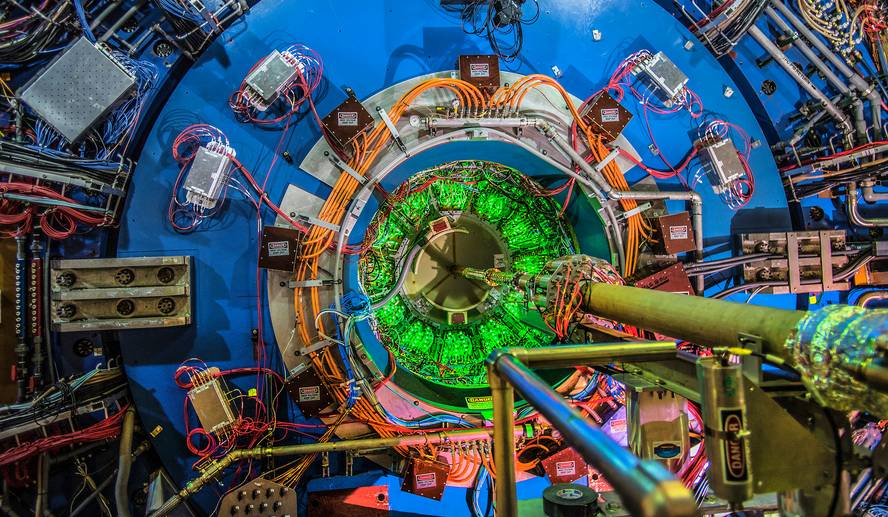They develop a method to know the forms of atoms' nuclei.

A new way of studying the shape of atomic nuclei has been discovered, which have been affected by high-energy clashes between them. The shape of atomic nuclei affects almost all aspects of nuclear processes, so it may be important to better understand them to better understand how elements are formed in stars and to know what the best nuclear fuels can be. Revista Nature
At the Brookhaven National Laboratory in New York, the RHIC talker caused collisions between uranium-238 nuclei and also with gold atoms. As they collide so hard, the yellow cores dissolve in a "soup." This hot plasma spreads quickly under pressure, and its spread depends on the initial shape of the nuclei.
With the above methods, only the average of the fluctuating forms of the nuclei was obtained. This new method is much more direct and accounts for the exact shape the cores have at the time of shock. Thus, the results show that the nucleus of the gold atoms is almost spherical and that of uranium is shaped like kiwi.
This method, besides offering more accurate images of nuclei, allows analyzing exotic and complex forms that cannot be seen with traditional methods. In addition, the analytical capacity of the deformation of cores due to high energy impacts can help distinguish "rigid" cores, with well-defined and "smooth" shapes, which continuously vary due to quantum fluctuations.
The study of these forms can provide decisive information on the way protons and neutrons are grouped into nuclei and help to understand complex nuclear phenomena.





